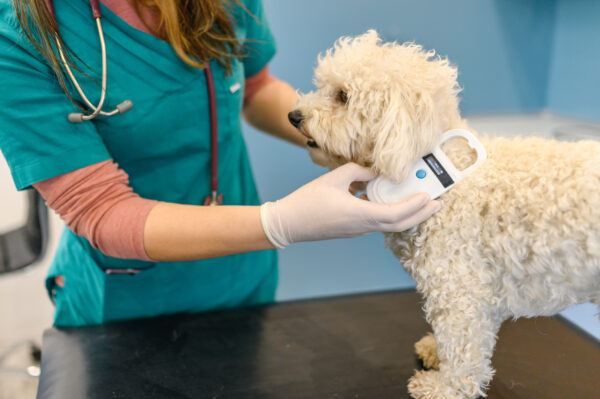A healthy gut is fundamental to your dog’s overall wellbeing, as it means so much more than just fewer tummy troubles. It can improve your dog’s mood, energy levels, immune response, and even the shine of their coat. Imagine your dog bouncing with energy, easily digesting their food, absorbing all the nutrients they need and enjoying life to the fullest. It all starts in the gut.
But whether your furry friend has a sensitive stomach or you’re simply aiming for prevention, caring for your dog’s digestive health is one of the best ways to care for their overall health. Here’s how to do it, with natural strategies supported by vets and animal nutrition experts.
1. Ensure they have a balanced diet
Look for high-quality dog food made from highly digestible ingredients like plenty of animal protein (we recommend at least 30%) and a recipe containing prebiotics and probiotics. Brands like Go! Solutions offer high-protein dog food made with natural ingredients, prebiotics, probiotics and a specialised range of dog food for sensitive stomachs, Go! Solutions Sensitivities, which is formulated to minimise adverse reactions while supporting digestive health.
However, if your dog has skin or digestive issues, it’s always best to consult your vet first before changing their diet, as they may have a more tailored recommendation for them.
2. Keep your dog hydrated
Proper hydration is so important for digestion, kidney health and nutrient absorption. Ensure your dog always has access to fresh, clean water, no matter the time of year or weather.
If your dog isn’t drinking enough, we find that placing a couple of additional bowls in different areas of your home can do the trick, especially if you have multiple pets. Pet water fountains can also be a simple solution for pets that aren’t normally interested in water.
3. Give them regular exercise
Physical activity stimulates the digestive system and promotes regular bowel movements. So, aiming for at least 30 minutes of exercise daily, such as walks, playtime, or a fetch game, is ideal. Always be mindful of your pet’s age, health and energy levels though, so you can adapt your daily exercise routine to them, going at a pace that isn’t too intense for your furry companion (a hesitant dog when you’re getting ready to leave the house is usually a sign that you need to slow down).
4. Minimise stress
This may not always be obvious, but stress can affect your dog’s digestion, with chronic stress disrupting the gut microbiome. If your dog is showing signs of anxiety, such as excessive barking, nervousness or destructive behaviour, finding the cause is key. Once that’s covered, we can try to create a calm environment with a consistent routine and enough mental and physical stimulation through dog toys and quality time together – these are easy but effective ways to help your dog feel safe and cared for.
5. Keep up with parasite protection
Common parasites like fleas and worms can upset your dog’s digestive system – one of the many reasons regular flea, tick and worming prevention is an essential part of having a dog. This is because fleas can carry tapeworm, which can end up in your dog’s digestive tract if ingested. Other intestinal worms commonly found in the UK are roundworms, hookworms and whipworms. The good news is that regular treatments are easy to use and will keep your dog protected when applied regularly.
Last but not least, that yearly vet visit is great for monitoring your dog’s health (digestive or otherwise), so it’s important to put a note in your calendar. Plus, nothing compares to the personalised care from a qualified vet when we’re concerned about our dog’s health.
Healthy gut, happy dog.
The main takeaway here is that looking after your dog’s digestive system with the right diet, routine and care will not only help improve their tummy, but also their quality of life. Think of it as a daily gift to your best friend: one step, bite and sip at a time!



